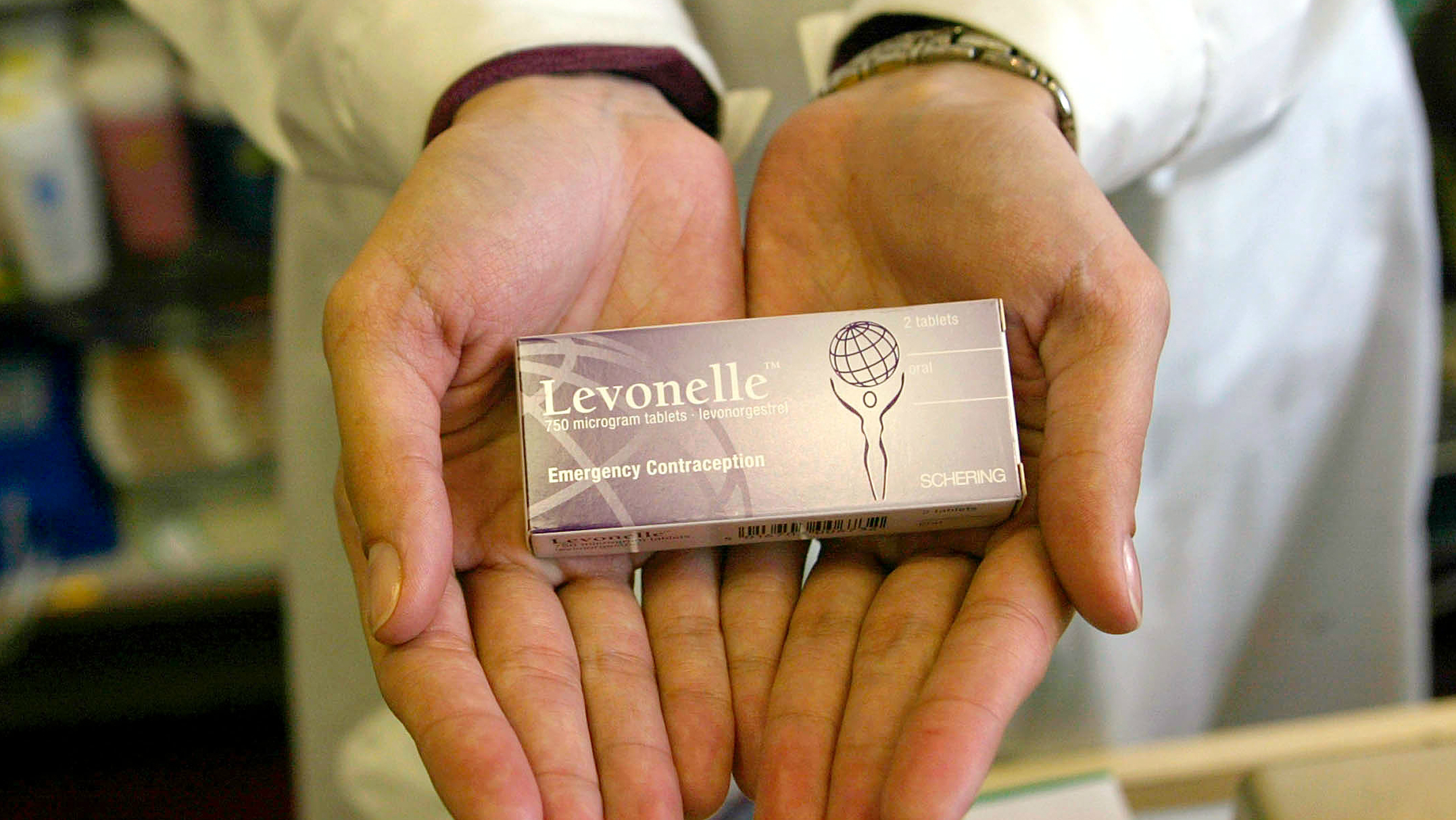Should morning-after pill be available 'off the shelf'?
British Pregnancy Advisory Service calls for end to 'sexist surcharge' for mandatory consultations

A free daily email with the biggest news stories of the day – and the best features from TheWeek.com
You are now subscribed
Your newsletter sign-up was successful
A leading pregnancy charity has called for the morning-after pill to be made available in supermarkets and pharmacies at a drastically reduced cost.
Studies by the British Pregnancy Advisory Service (BPAS) found Levonelle, the leading brand of emergency contraception, costs as much as £30 in UK pharmacies but can be bought in France for £6.
The inflated price reflects "a really outdated and patronising view that we can't be trusted with this medication or we'll be reckless, it'll be one-night stands left right and centre", the charity's spokeswoman, Katherine O'Brien, told The Independent.
The Week
Escape your echo chamber. Get the facts behind the news, plus analysis from multiple perspectives.

Sign up for The Week's Free Newsletters
From our morning news briefing to a weekly Good News Newsletter, get the best of The Week delivered directly to your inbox.
From our morning news briefing to a weekly Good News Newsletter, get the best of The Week delivered directly to your inbox.
In 2003, Levonelle's makers, Schering Health Care, confirmed the high price was set partly to "ensure that [it] is not used as a regular method of contraception", the paper adds.
BPAS also claimed cuts to sexual health services meant visits to GP surgeries and sexual health clinics, which can provide the pill free of charge, were not a practical option for many women and called for an end to mandatory consultation with a pharmacist before a purchase, claiming it was "unnecessary and embarrassing".
Ann Furedi, the chief executive of BPAS, told the Daily Telegraph: "There is no clinical reason for a woman to consult with a healthcare professional before she obtains EC [emergency contraception], unless she wishes to.
"It's time to ditch what is the ultimate sexist surcharge and put emergency contraception where it belongs - on the shelf, at a price women can afford."
A free daily email with the biggest news stories of the day – and the best features from TheWeek.com
Pharmacist groups and family groups questioned the wisdom of relaxing the current regulations.
Sandra Gidley, from the Royal Pharmaceutical Society, denied that pharmacist consultations influenced the cost of the pill.
She added that the consultation provided an opportunity for pharmacists to discuss contraception and sexually transmitted infections, as well as answer any queries women may have about sexual and reproductive health.
The Family Education Trust, which promotes what it calls "traditional" values and has previously accused the government of "facilitating lawbreaking" by allowing underage girls to access emergency contraception, claims mandatory consultations help to prevent exploitation and abuse.
Allowing free purchase of the pill "would make it easier than ever for the abusers of vulnerable girls and young women to force their victims to purchase the drug - or even to buy it for them - as a way of trying to conceal their crime", said Norman Wells, the trust's director.
In response, a Department of Health spokesman said women could still obtain free emergency contraception at GP surgeries and sexual health clinics, adding: "We are clear it is only for use in emergencies and we have no plans to change the system."
-
 How the FCC’s ‘equal time’ rule works
How the FCC’s ‘equal time’ rule worksIn the Spotlight The law is at the heart of the Colbert-CBS conflict
-
 What is the endgame in the DHS shutdown?
What is the endgame in the DHS shutdown?Today’s Big Question Democrats want to rein in ICE’s immigration crackdown
-
 ‘Poor time management isn’t just an inconvenience’
‘Poor time management isn’t just an inconvenience’Instant Opinion Opinion, comment and editorials of the day